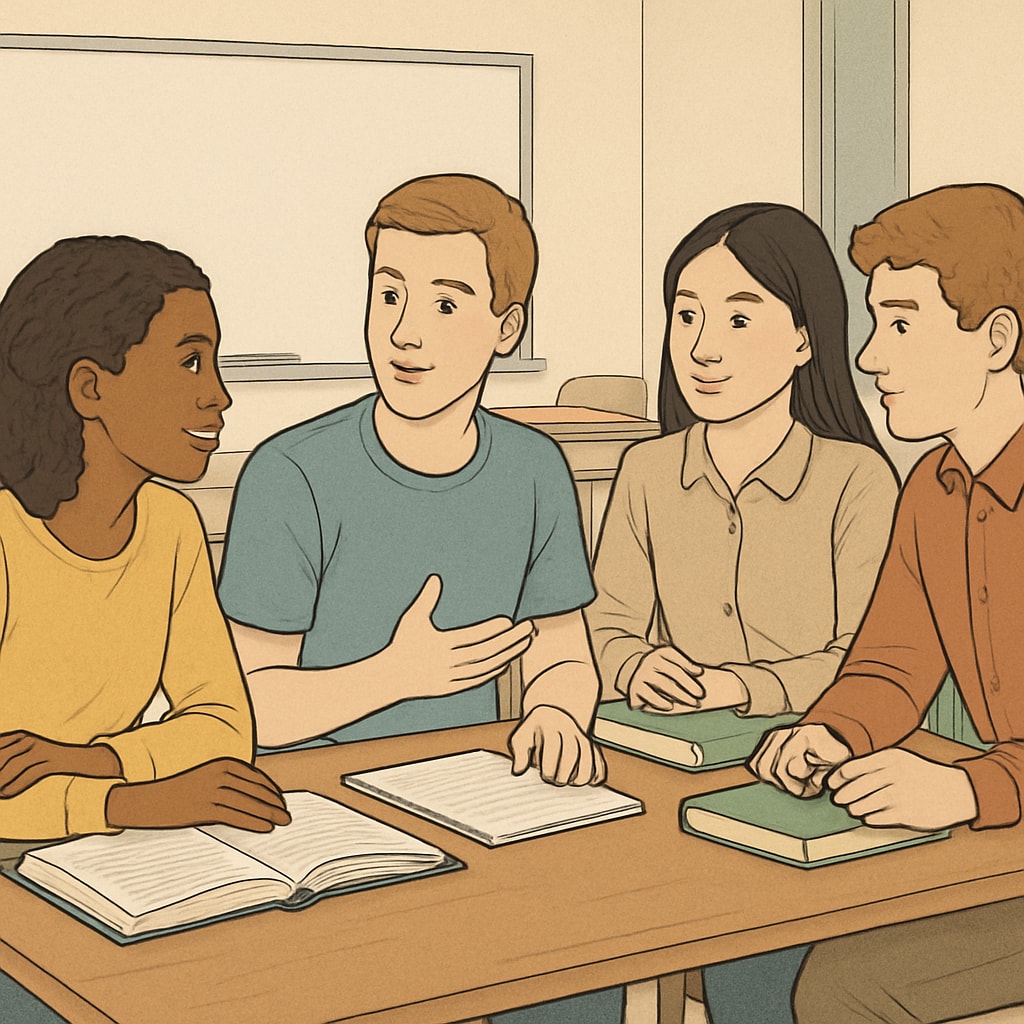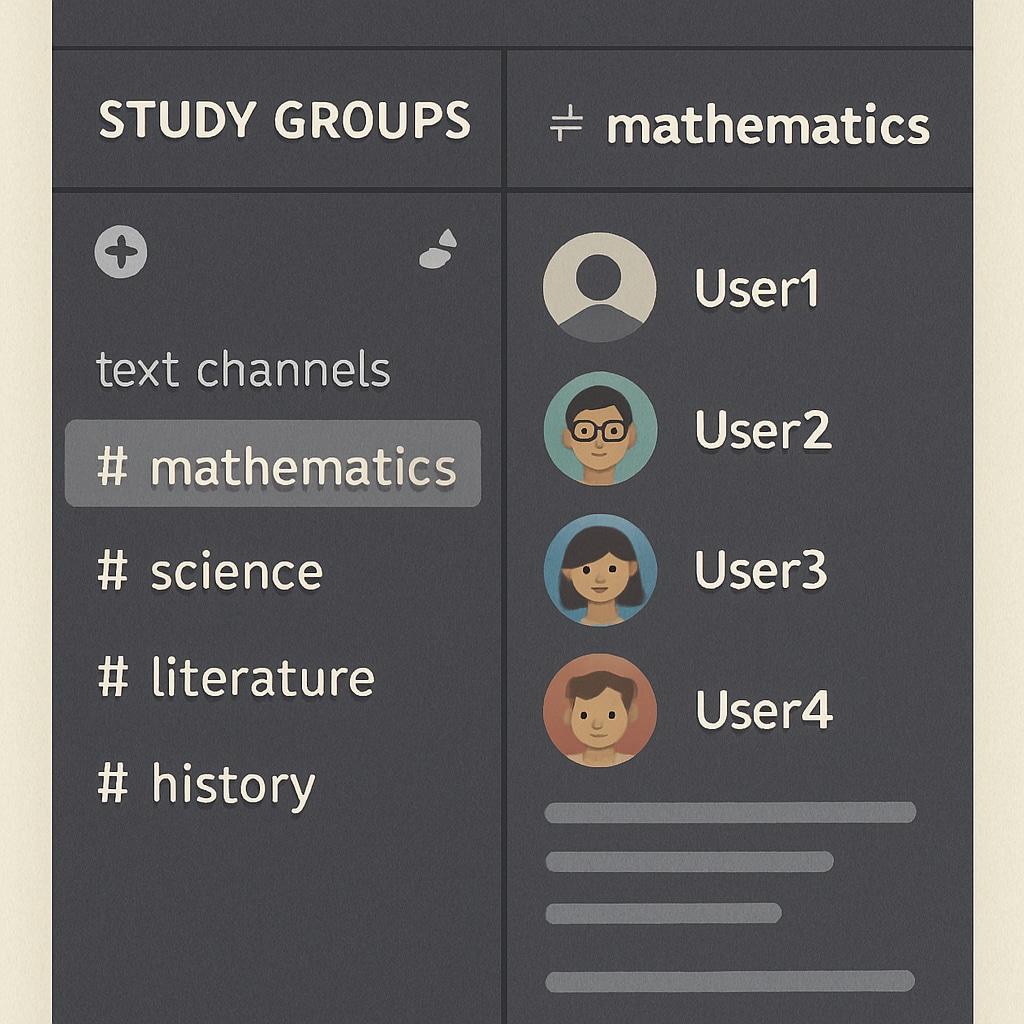Collaborative learning groups, Discord, and the University of Houston’s educational strategies serve as a strong foundation for enhancing student engagement and knowledge sharing in K12 environments. As schools increasingly embrace digital tools and peer-led learning, integrating proven methods from higher education institutions can empower younger students to build effective learning communities, both online and offline.
The Role of Study Groups in Collaborative Learning
Study groups have long been recognized as an essential element of effective education. They provide students with opportunities to exchange ideas, clarify concepts, and support one another in achieving academic goals. In the context of K12 education, these groups can foster a sense of belonging, encourage teamwork, and improve communication skills. For example, the University of Houston has demonstrated how structured study groups can significantly enhance students’ comprehension and retention of complex subjects.
In addition, collaborative learning groups encourage active participation, which is critical for younger learners. By working together, students can explore different perspectives, solve problems collectively, and develop critical thinking skills. These dynamics are not only beneficial academically but also contribute to the social and emotional growth of students. As a result, educators should prioritize the formation of study groups within their classrooms.

Utilizing Digital Platforms like Discord
Digital platforms such as Discord have emerged as powerful tools for fostering collaborative learning. Originally designed for gaming communities, Discord has evolved into a versatile communication platform that supports text, voice, and video interactions. Its adaptability makes it ideal for creating virtual study spaces where students can share resources, discuss topics, and collaborate on projects in real time.
For instance, the University of Houston has successfully implemented Discord to facilitate academic discussions and group activities. This model can be replicated in K12 settings to bridge the gap between physical and virtual learning environments. Teachers can set up dedicated servers for their classes, organize channels for specific subjects, and monitor student engagement. Additionally, Discord’s accessibility allows students to participate from anywhere, making it an excellent tool for hybrid or remote learning scenarios.

Lessons from the University of Houston
The University of Houston stands out for its innovative use of study groups and digital platforms to promote collaborative learning. By combining in-person and online strategies, the institution has created dynamic learning communities that support diverse student needs. K12 educators can learn from these practices by adapting them to suit younger learners.
Key takeaways from the University of Houston include:
- Establishing clear objectives for study groups, such as improving specific skills or preparing for exams.
- Providing students with access to digital tools like Discord to enhance communication and resource sharing.
- Encouraging peer leadership within study groups to foster accountability and mutual respect.
- Offering training sessions for students and educators on effectively using digital platforms.
By implementing these strategies, K12 institutions can build engaging and productive learning communities that prepare students for future academic and professional challenges.
Building Effective Learning Communities in K12 Education
To create impactful learning communities, educators must focus on both the social and technological aspects of collaboration. Study groups and platforms like Discord are valuable tools, but their success depends on thoughtful implementation. Teachers should ensure that students feel comfortable participating, set clear expectations, and provide ongoing support.
Moreover, integrating digital tools into K12 education requires careful planning. Educators must address potential challenges, such as ensuring equitable access to technology and maintaining a safe online environment. By learning from successful examples, such as the University of Houston, schools can overcome these hurdles and unlock the full potential of collaborative learning.
In conclusion, collaborative learning groups, combined with digital platforms like Discord, offer transformative opportunities for K12 education. By drawing inspiration from higher education institutions like the University of Houston, schools can create vibrant learning communities that empower students to succeed academically and socially.
Readability guidance: This article uses concise paragraphs, lists to summarize key points, and evenly distributes keywords throughout the text. It prioritizes active voice and avoids overuse of complex sentence structures, ensuring clarity and engagement for readers.


